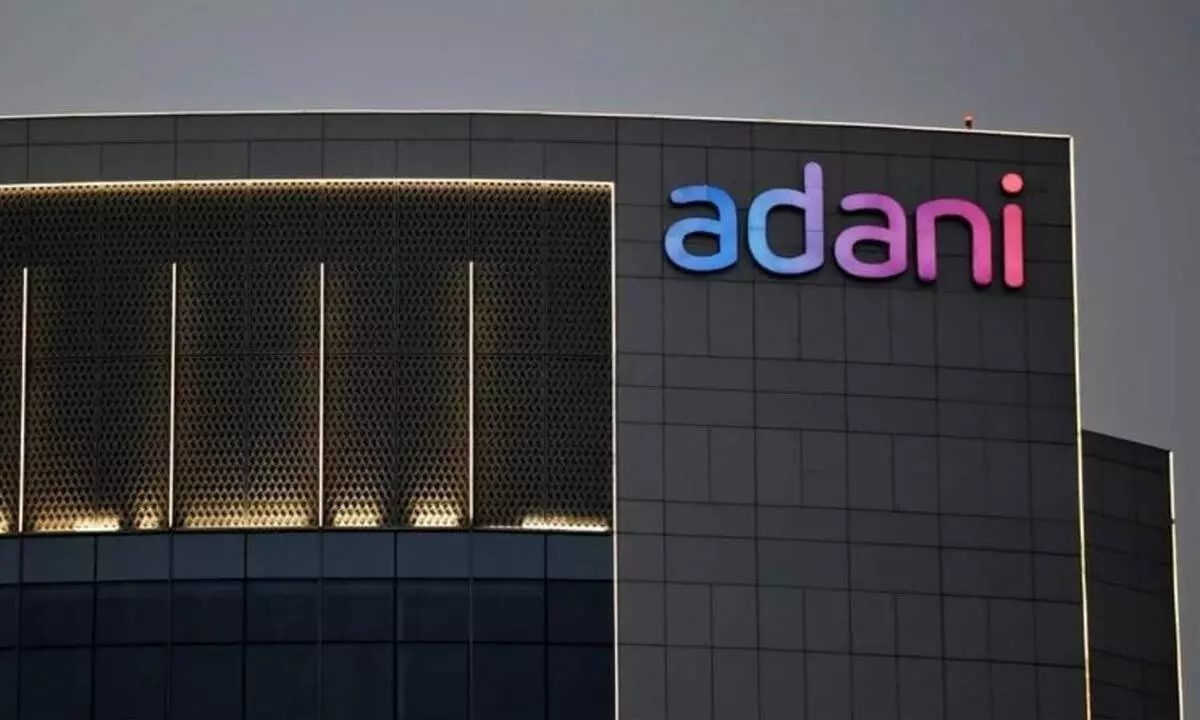Adani Group deeply overleveraged: Report

Huge debt-led growth plans may spiral into a massive debt trap or possibly culminate into a distressed situation even if one group company defaults
New Delhi: Richest Indian Gautam Adani's ports-to-power-to-cement conglomerate is 'deeply overleveraged' with the group predominantly using debt to invest aggressively across existing as well as new businesses, observes CreditSights, a Fitch Group unit.
In a report titled 'Adani Group: Deeply Overleveraged', released on Tuesday, CreditSights said:"In the worst-case scenario, overly ambitious debt-funded growth plans could eventually spiral into a massive debt trap, and possibly culminate into a distressed situation or default of one or more group companies."
Starting out as a commodities trader in the late 1980s, the Adani group has diversified from mines, ports and power plants into airports, data centers and defence. Recently, it forayed into the cement sector with a $10.5 billion acquisition of Holcim's India units as well as into alumina manufacturing. Most of this expansion has been funded by debt.
"Over the past few years, the Adani Group has pursued an aggressive expansion plan that has pressurized its credit metrics and cash flows,"CreditSights said. "The Adani Group is increasingly venturing into new and/or unrelated businesses, which are highly capital intensive and raises concerns regarding spreading execution oversight too thin," it added. While there is evidence of promoter equity capital injection into group companies, the Adani Group is exposed to moderate levels of governance and environmental, social, and governance (ESG) risks.
"The Adani Group has a strong track record of churning out strong and stable companies through its Adani Enterprises arm, and boasts a portfolio of stable infrastructure assets tied to the healthy functioning of the Indian economy," the report said.
The Adani Group has six listed entities on the Indian stock exchanges, and a few of its group entities have US dollar bonds outstanding. The six listed Adani group firms had a gross debt of Rs2,309 billion as of FY22-end. Net debt after accounting for cash in hand was Rs1,729 billion. "In general, the Group has been investing aggressively across both existing and new businesses, predominantly funded with debt, resulting in elevated leverage and solvency ratios," it said. This has caused concerns about the Group as a whole, CreditSights said, adding that it remains cautiously watchful of the Group's growing expansion appetite, which is largely debt-funded. The Adani Group is the third largest conglomerate in India, after Reliance Industries (RIL) and the Tata Group. It has a total market capitalization of over $200 billion. In recent years, the Adani Group has become increasingly aggressive in expanding its existing businesses, as well as establishing new ones in different industries. The rapid expansion has largely been fuelled by debt funding, which has caused the leverage (gross or net debt / EBITDA) of several group companies and hence of the overall consolidated group to soar in the past few years.
"We, as well as many clients and other investors, are becoming increasingly concerned about the group's rapid pace of growth and its high leverage levels. "Excessive debt and overleveraging by the group could have a cascading negative effect on the credit quality of the bond issuing entities within the group and heightens contagion risk in case any entity falls into distress," the report said. Citing expansion into areas where it has no prior experience or expertise such as copper refining, petrochemicals, telecom and aluminum production, it said the businesses typically dont have the ability to repay the debt immediately considering that they do not make profits in the initial few years. And so, they will rely on "rolling-over/refinancing the obligations in the initial few years, which is, in turn, dependent on maintaining solid banking relationships and on strong capital market conditions," it said.
Being the primary incubator for Adani Group's new and developing businesses, Adani Enterprises Ltd (AEL) invariably incurs the highest capex amongst its sister entities. Over the past five years, AEL has invested heavily in new growth sectors that include airports, cement, copper refining, data centers, green hydrogen, petrochemical refining, roads and solar cell manufacturing.










